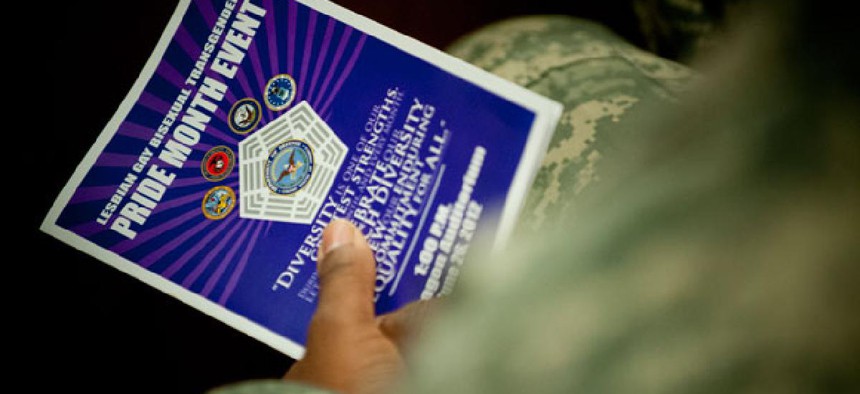
Defense Department
Bill Would Allow Gay Vets to Update Service Records
Legislation could help those discharged for their sexual orientation access benefits.
A new House bill would allow veterans discharged from the military for being gay to update their records to reflect honorable service, making them eligible for benefits.
The legislation would ensure that military personnel who were discharged solely because of their sexual orientation could upgrade to an honorable discharge. Before the repeal of “Don’t Ask, Don’t Tell” took effect in 2011, about 114,000 service members had been discharged since World War II because they were gay -- many receiving other than honorable or dishonorable discharges. The now defunct 1993 law banned gays from serving openly in the military.
“Our legislation ensures that gay veterans who selflessly served our country no longer live with tarnished records that prohibit them from receiving the recognition, benefits and honors they deserve,” said Rep. Mark Pocan, D-Wis., who introduced the bill with Rep. Charlie Rangel, D-N.Y., a veteran of the Korean War.
Military personnel could be ineligible for various vets’ benefits, including health care and disability, as well as the GI Bill, depending on their discharge. A dishonorable discharge is treated as a felony in some states, and vets can have trouble finding jobs with a discharge that’s less than honorable.
“It is important that we continue to address the discrimination that LGBT [lesbian, gay, bisexual and transgender] veterans face by updating their service records to reflect the reality of their service” said Allison Herwitt, legislative director of the Human Rights Campaign. “We are thankful that Reps. Pocan and Rangel have addressed this issue with the Restore Honor to Service Members Act.”
The bill also would remove any mention of service members’ sexual orientation from their records to prevent future discrimination.
In January, a court case settlement awarded full severance pay to gay and lesbian service members discharged from the military on or after Nov. 10, 2004 under DADT. Military members who were involuntarily and honorably discharged under DADT after six years of service were only entitled to half of their severance pay. DADT officially came to an end in September 2011, but the pay policy was separate.
NEXT STORY: How Obama Learned to Deal with the Taliban







